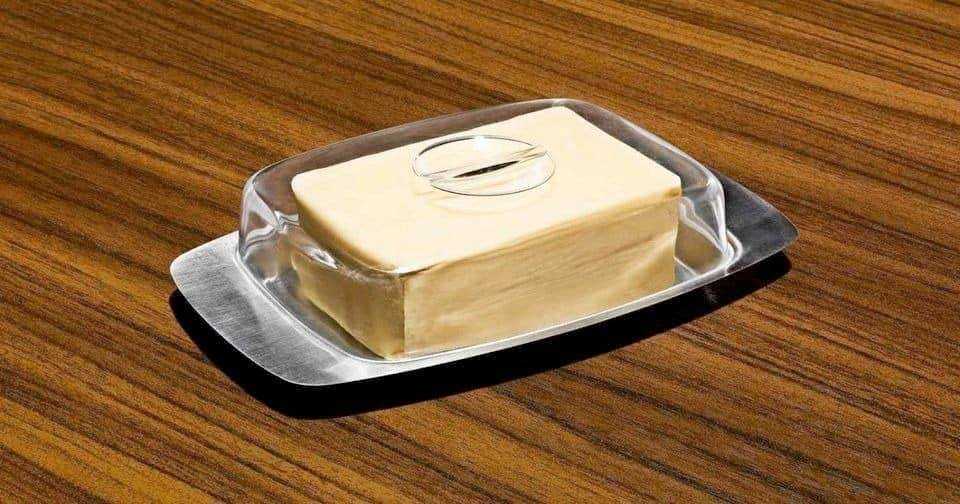ADVERTISEMENT
How to Store Butter at Room Temperature Safely
If you’re ready to leave butter on the counter, here are a few storage tips to ensure it stays fresh:
- Use a Butter Dish with a Lid: A covered butter dish will help protect the butter from exposure to air, light, and contaminants. The lid also helps maintain the butter’s spreadable texture without letting it get too soft or too hard.
- Keep It in a Cool, Dry Place: Store your butter away from heat sources such as stoves, microwaves, or sunny windowsills. Excess heat can cause it to melt or spoil more quickly.
- Keep It Separated: If you use a lot of butter, consider dividing it into smaller portions. Keep one portion at room temperature for daily use, and store the rest in the fridge to maintain its shelf life.
- Use a Butter Bell: A butter bell or butter crock is another great way to store butter on the counter. It keeps the butter in an airtight container submerged in water, creating a seal that helps keep the butter fresh.
What Happens If You Leave Butter Out Too Long?
While leaving butter out for a short time is usually safe, leaving it at room temperature for too long could lead to spoilage. Over time, butter may become rancid, which means it will develop an off-putting smell and taste. Rancidity occurs when fats in the butter oxidize and break down, producing a sour, unpleasant flavor.
Signs of Spoiled Butter:
- Off smell: If the butter smells sour or unpleasant, it may have gone bad.
- Discoloration: Butter that has started to spoil may turn a darker color or develop mold.
- Oily or greasy texture: If the butter feels overly greasy or slimy, it might be a sign that it’s gone rancid.
If you notice any of these signs, it’s best to discard the butter.
Should You Refrigerate Butter?
While leaving butter on the counter is fine for short-term use, if you prefer to keep it for a longer period, refrigeration is a safer option. Refrigerating butter will extend its shelf life by slowing down bacterial growth and keeping it fresh for up to 1-3 months.
Pros of Refrigerating Butter:
- Longer shelf life: Butter can last for up to 3 months in the fridge without going bad.
- Less risk of spoilage: Butter stored in the fridge will stay fresh for a much longer time, reducing the risk of it turning rancid.
The downside is that cold butter can be harder to spread, especially if it’s stored in a solid block. To counter this, you can take out small portions of butter and leave them on the counter for a day or two, or you can use a butter dish that makes it easier to scoop out.
Can You Freeze Butter?
If you’ve bought too much butter or just want to keep it for an extended period, freezing butter is a good option. Butter freezes very well and can last in the freezer for 6-9 months. Simply wrap the butter in its original packaging, or place it in an airtight container or freezer bag to prevent freezer burn.
When you’re ready to use frozen butter, simply thaw it in the fridge overnight.
Conclusion: Is Leaving Butter on the Counter Safe?
In short, yes, leaving butter on the counter is generally safe for short periods, especially if it’s salted butter. It’s all about maintaining proper storage and keeping the butter in a cool, dry place to avoid spoilage. Unsalted butter, however, is more perishable, so it should only be left out for a few days. After that, refrigerating it is the best option to keep it fresh.
By following the tips outlined here, you can enjoy the convenience of soft, spreadable butter while ensuring it stays safe and delicious.
ADVERTISEMENT
